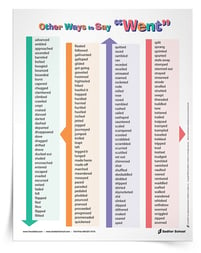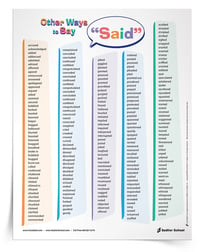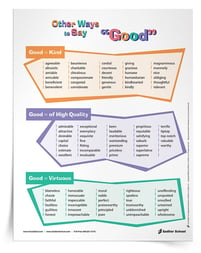January 10, 2019 VG Teaching Resources Vocab & ELA Res, VG Teaching Strategies Pro Dev Resources, Vocab Gal, ELA PD - Literacy, ELA K-5, ELA Focus - Reading, ELA 6-8, ELA Resources - Assessment, ELA Resources - Activities, ELA 9-12, ELA PD - Vocabulary, ELA Resources - Games, ELA Resources - Charts/Posters, ELA Focus - Vocabulary
Help Struggling Readers Build Vocabulary; 10+ Printables to Get You Started
By: Vocab Gal
Today I want to discuss how to help struggling readers build vocabulary! In this article, you'll find over 10 free printables reading specialists and literacy coaches can use to help struggling readers build vocabulary. Before I share strategies and activities for struggling readers, lets discuss the role of reading specialists and literacy specialists.
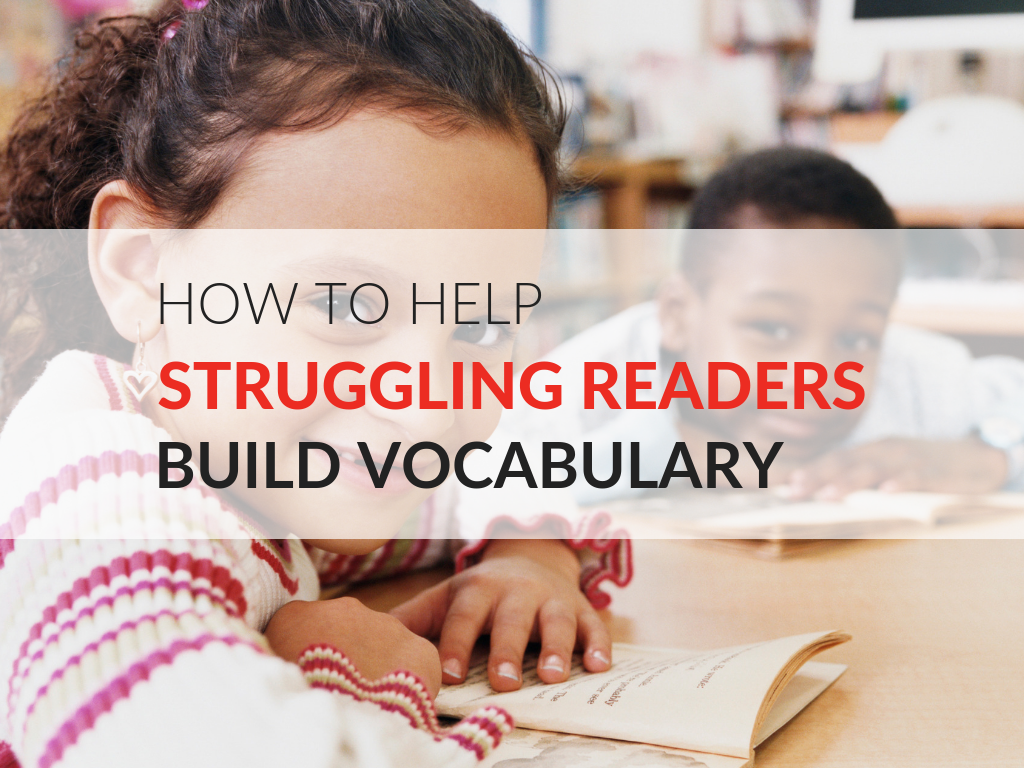
I love working with our district’s literacy coaches and reading specialists, and I have a special place in my heart for Ms. Long, the reading specialist at my son’s elementary school, because she was also his Kindergarten teacher. This year Ms. Long is working with our guidance counselor to host a book group, and, although my son is not an avid reader, he was excited to join his classmates and teachers in such a fun endeavor.
My son has been eagerly reading his chapter book each week and looks forward to discussions. He has shared with me his group’s predictions and new words they’ve deciphered.
So when I sat down to write this post, I wrote it for Ms. Long, and for all the reading specialists who provide amazing opportunities for students every day. Whether your job title actually is “Reading Intervention Specialist,” or, because of budget constraints, it is merely one of the many hats you wear in your classroom/building/district, I hope you find these ideas helpful.
The Role of Reading Specialists
A reading specialist has many roles, most importantly assessing where each student is delayed and diagnosing what strategies would help that student improve.
From sight word work and language decoding to fluency exercises and teacher training, reading specialists have to carry around an entire toolbox (or rolling cart) full of strategies and activities to help individual students and classes succeed.
A reading specialist helps students understand word meanings and the function of context clues. If students can gain confidence in reading because they understand what most of the words on the page mean, and can use context clues to figure out the remaining words, then their reading scores jump significantly.
It’s important to note that the roles of reading specialists and of literacy coaches have become very similar in recent time. The tips in this post are directed at both types of professional.
This post presents practical, hands-on strategies and downloadables that reading specialists can use in the classroom or in pull-out situations in order to address the multifarious needs of their struggling readers.
Because a significant role of the reading specialist is to augment struggling readers’ vocabularies, the lessons and activities for struggling readers suggested here will allow reading teachers to improve their students’ lexile levels and will help them gain strategies for recognizing unknown words.
How Reading Specialists Can Identify Struggling Readers
First, in order for reading specialists to be effective, they must discover the struggling readers in the classes they cover. Using test results and teacher feedback, reading specialists should hold one-on-one meetings with these students. Have them read a brief passage on grade-level, ask them questions about their struggles and successes in reading, and get an overall sense of what students can/cannot decode and process.
This website gives useful suggestions for various early reading assessments.
How Reading Specialists Can Encourage a Love of Learning
Once the students’ level of proficiency has been assessed, the reading specialist should work with each student on strategies for reading development.
A major component of reading development is recognizing and understanding vocabulary. However, many students can be resistant to learning new words and also may feel anger or shame about being pulled out of class or given alternative assignments.
That’s why there are many games and vocabulary development activities on the Vocab Gal blog that allow literacy coaches and reading specialists to work with students in fun and practical ways that allow for maximum learning. A few favorites include...
Vocabulary Development Activities and Games to Maximize Learning
#1 VOCABULARY QUESTION CUBE
A great way to talk through all aspects of a new word or group of words in a small group setting. Teachers and/or students can create the cube and then pick a word. Students can then toss the cube around and answer each question until a word has been thoroughly ingrained into their heads.
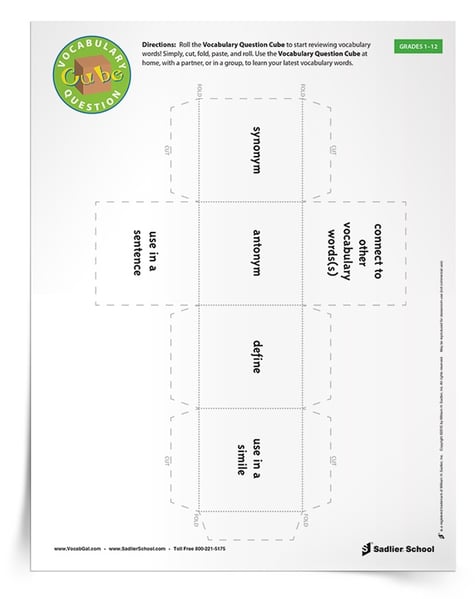
#2 GO FISH VOCABULARY GAME
A fun, non-threatening game for students that asks students to pair definitions and words together. There is an element of challenge in that students who need a word can’t simply ask for it by name, but have to ask for “the word that means…” or “a synonym for…” so both players have to understand each word.

#3 NAME A CAR
A favorite activity among students where they get to design a car and a car advertisement using new words. Students have so much fun designing and describing their cars using as many words as possible that they really start to see how words work in sentences. Additionally, you may want to ask students to read and comment on their classmates’ work in order to gain a deeper understanding of new words.
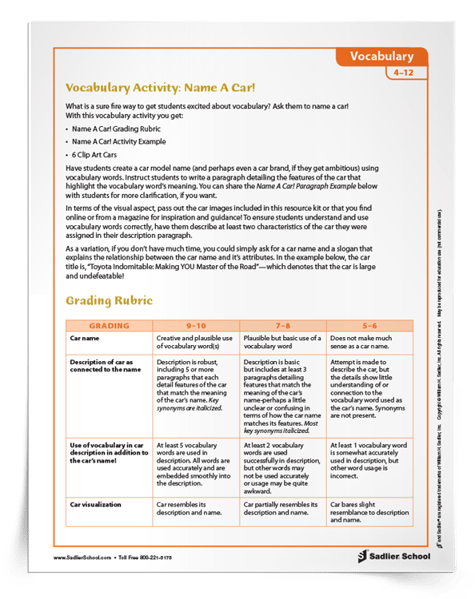
#4 VOCABULARY CHECKERS
Students must use the vocabulary word on any given space in a sentence before being allowed to move to that space. You may require that both spots’ vocabulary words be used in a sentence when a student wants to “jump” another player’s token and therefore skip over that space. Students often go back to their definitions to really get a sense of how to use each word.
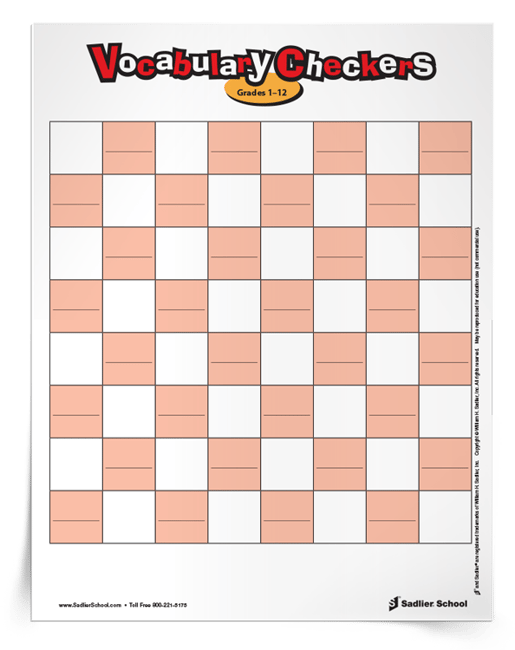
#5 VOCABULARY LAND GAME BOARD
A beautifully-designed version of Candy Land where students must write in and then use vocabulary words to move along in game play. It’s wonderful how the artwork in this game can remind students of earlier childhood memories and therefore make word learning seem like child’s play.
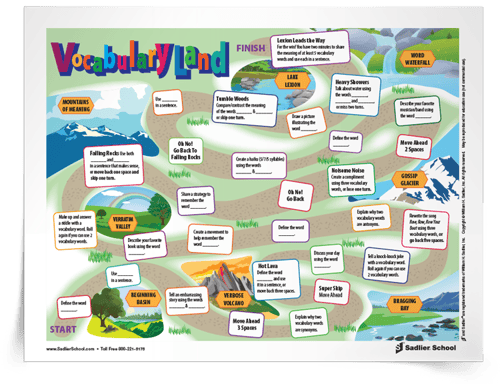
#6 VOCABULARY VIDEO GAME
This game is great for any student who loves videogames or role-playing, students get to create the actions players take in this game by including vocabulary words in directions for each icon on the path.
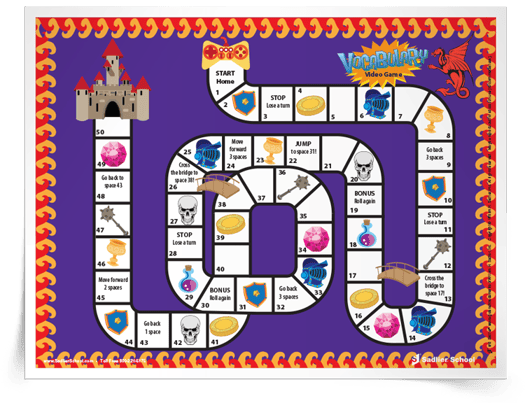
Practice and Assessment Resources for Reading Specialists
#7 VOCABULARY HOMEWORK OPTIONS
Students can also practice both learning new words and reading more fluently through interesting home activities. This assessment allows students to choose the way they most enjoy learning and to connect their learning style with studying new words.

#8 VOCABULARY SHEET OF THE WEEK
The list of words that literacy specialists/coaches study with students can often be overwhelming to those students. Using the Vocabulary Sheet of the Week is a great way for students to see at a glance each word they are learning and how they personally connected to each one. The sheet allows space for student-created definitions, sentences, mnemonic device, and pictures; it pushes students to work with each word significantly before moving on to the next.
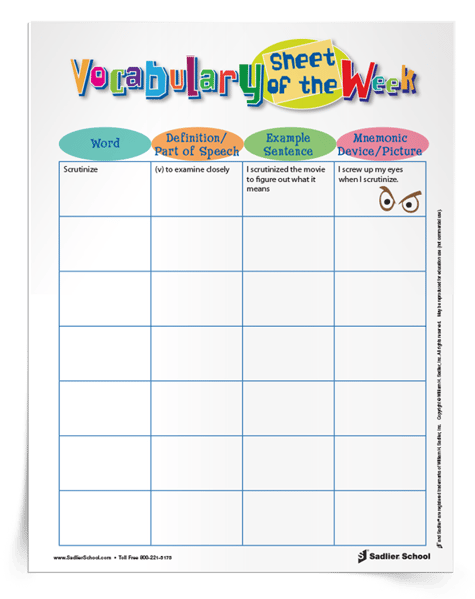
#9 DIFFERENTIATED WEEKLY ASSIGNMENT
I may be a little crazy, but my favorite part of the week is the vocabulary quiz. I love this assessment because I can individualize the quizzes quickly for each student, and I love to ask them to write sentences about their lives so I get to know them a little better. Because literacy specialists must keep data on student progress, these small, customized quizzes as benchmarks can be so helpful.
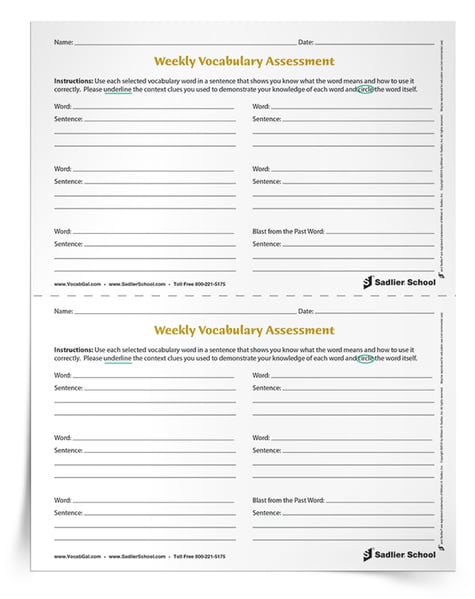
#10 VOCABULARY ASSESSMENT WORKSHEETS
When you aren’t sure how to assess students or what to look for, using these handy worksheets is a great way to see what students know and don’t know.
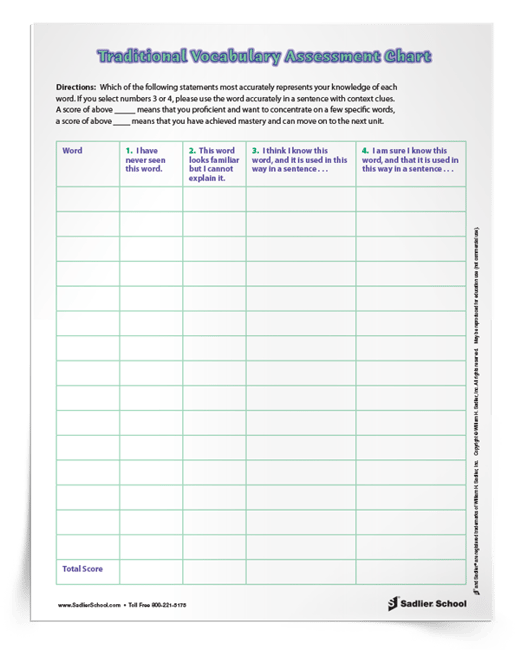
Bonus Resources for Reading Specialists and Literacy Coaches
As our struggling readers can often be struggling writers as well, here are a few other fun resources that can be placed in student’s binders, hung on walls, or laminated for writing workshop stations.
|
|
|
|
Why Vocabulary Instruction is Fundamental to Literacy
As much as I find that improving one’s reading comes from improving one’s vocabulary, not everyone agrees with me at first.
If you are struggling to make the connections between vocabulary study and improved literacy levels, or if you have an administrator or teacher who is struggling to see these connections, I highly recommend these quick, thoughtful, and free eBooks that will put these practical ideas in a larger pedagogical framework.
In Conclusion
Literacy and reading specialists have the Herculean job of improving the reading (and writing) skills of struggling students, many of whom may not be motivated to learn. Through these easy, practical, and fun activities for struggling readers, students can find the success that has eluded them for so long. At the same time, literacy coaches do not have to feel chained to the miserable, boring book of reading worksheets.
Connecting vocabulary to car designs, checkers, and Candyland provides real-world incentives to students—and the more engaged and valued they feel, the more time they will spend learning, until they can fully overcome any reading struggles.













